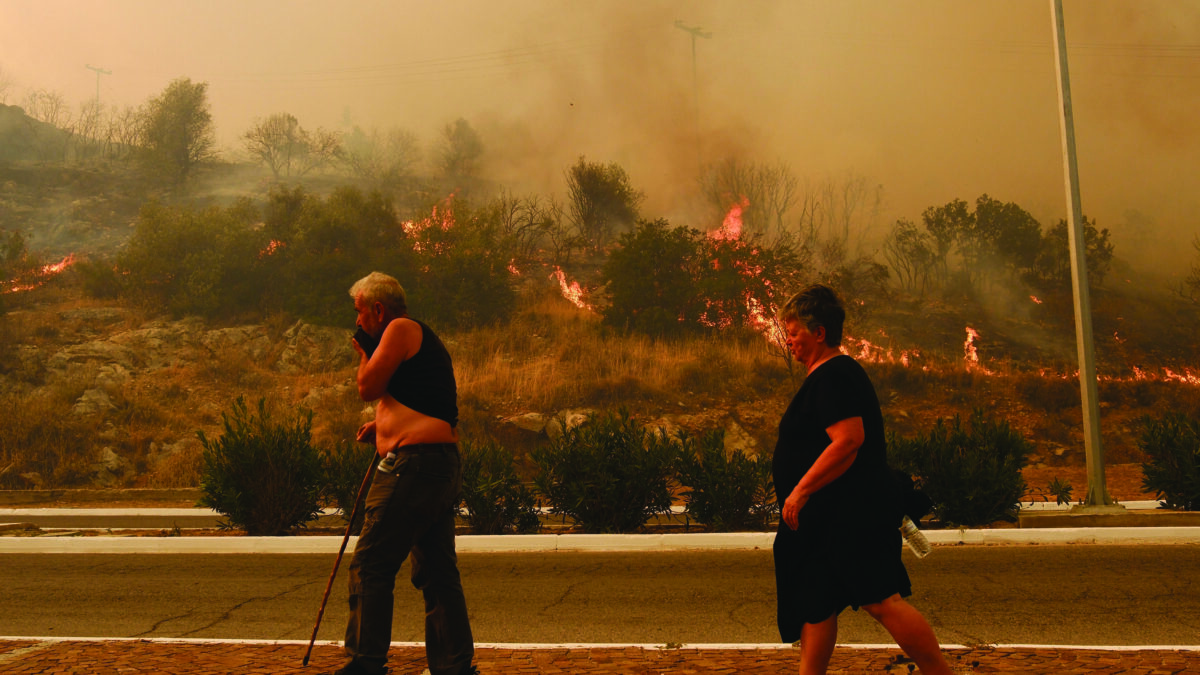If this summer was to have a soundtrack it would be REM’s It’s The End Of The World As We Know It (And I Feel Fine). Soaring record temperatures, floods and wildfires, apocalyptic visions of the impact of global warming made real have given an urgency to the need to address the great energy transition.
With Prime Minister Rishi Sunak setting out a plan for more drilling for oil in the North Sea and more carbon capture and storage, there is a pressing need for leaders to not only possess exceptional management skills, but to display the requisite knowledge and dexterity required to navigate the challenges of the great energy transition.
The University of Strathclyde Business School in Glasgow recently established an MBA in Sustainable Energy Futures in response to the global energy challenges and the drive to reach net zero by 2050.
Matthew Hannon, a Professor of Sustainable Energy Business and Policy at the Hunter Centre for Entrepreneurship, Strathclyde Business School, developed the flagship ‘Sustainable Energy Organisation’ module specifically for the course.
“This module is about trying to connect the fact that business as usual isn’t working, that we need to identify an alternative way forward where we can simultaneously satisfy people’s energy needs in a way that doesn’t imperil environmental sustainability but can boost economic prosperity in a fair and just manner,” he said.
“Trying to blend this triple bottom-line of economic, social and environmental value, the module looks at the types of businesses that are starting to emerge, how these can help accelerate a just and fair transition towards net zero and what kind of support we would need to put those on the map and encourage much broader adoption of those.”
And Dr Anita Singh, MBA Director and Principal Lecturer at RGU’s Aberdeen Business School, said that its executive MBA programme is designed to give students the ability to apply strategic thinking and leadership practice to help organisations move into a greener and more sustainable world.
“Students learn about the economics of energy transition, facets of energy policy, management of global sustainability and UN sustainable goals, and energy transition leadership amongst other important modules,” she said.
“The degree has helped several students working in the oil and gas sector to now participate actively in the energy transition programmes of their organisation.”
Regarding the Prime Minister’s plan for more drilling for oil in the North Sea, Professor Hannon comments that we need to address the challenges and dilemmas of energy transition from the perspective that business and policy need to be speaking the same language.
“If you enter a realm where those that are setting policy are indicating a different direction of travel to where business currently is, or where business felt they were going, then you end up creating confusion and uncertainty,” he said.
“The UK over the last year has not been presenting the same strong signals about climate and sustainability that it had been – particularly during COP26.
“Everybody needs to be on the same page about the challenges we’re facing, the costs of not meeting those, and how business, policy and the third sector need to work hand-in-hand to tackle those, because the cost of not doing so, and the failure to grasp that opportunity, is too severe to contemplate,” he said.
“Executive education courses like the Sustainability Energy Futures MBA are there to challenge the status quo and traditional ways of doing business by trying to build the foundations of what makes a sustainable economy and a sustainable society.
“What I’ve been pleasantly surprised by is how many of the leaders of today and tomorrow on these courses have risen to that opportunity and I’ve come away with the faith that we have the people in the right positions in the right organisations to make that difference.”
At times this summer it felt like the end of the world as we know it, but I feel fine with MBAs giving grounds for optimism in our future leaders’ abilities to tackle the challenges of the great energy transition.



